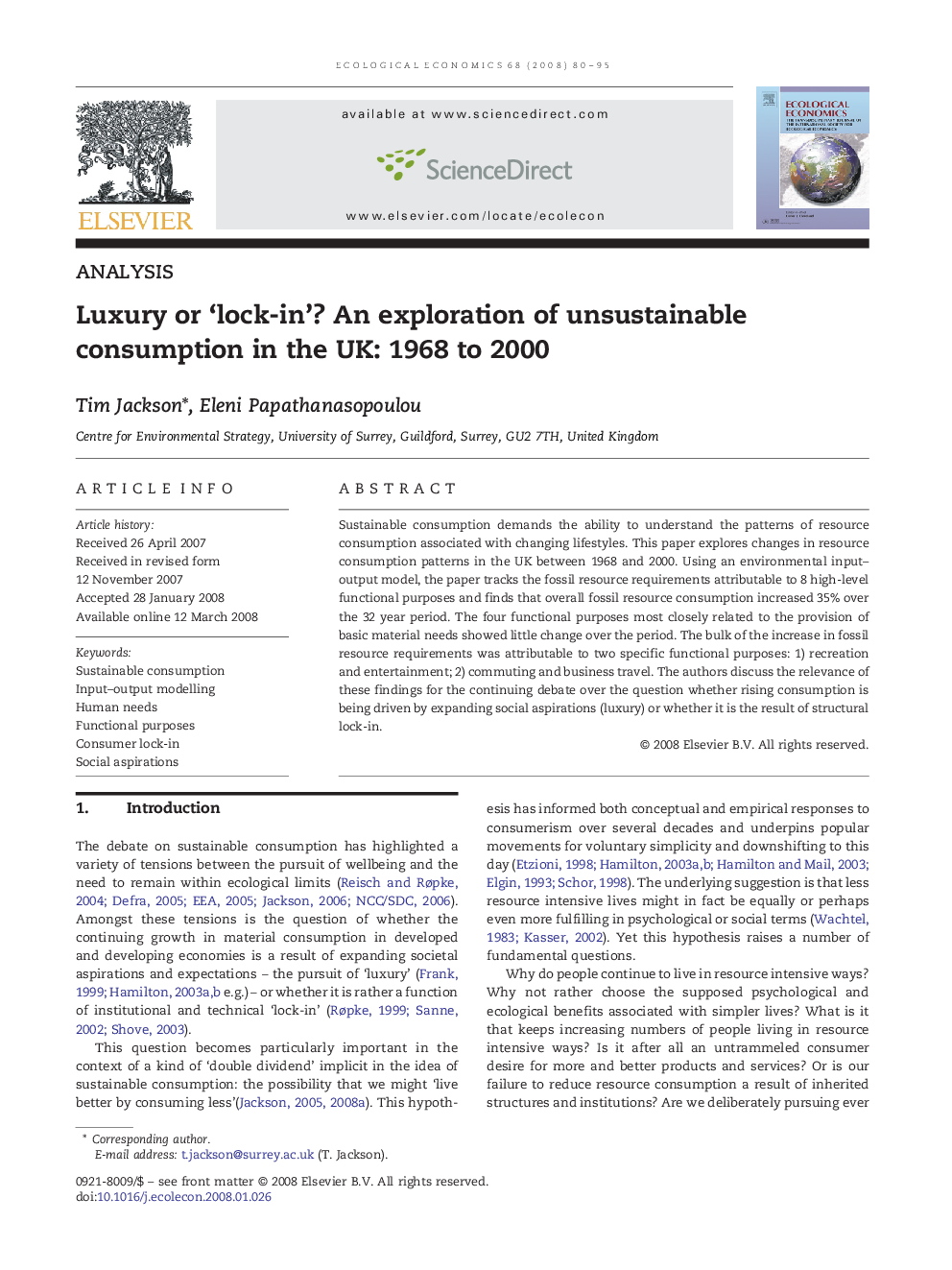| Article ID | Journal | Published Year | Pages | File Type |
|---|---|---|---|---|
| 5051671 | Ecological Economics | 2008 | 16 Pages |
Abstract
Sustainable consumption demands the ability to understand the patterns of resource consumption associated with changing lifestyles. This paper explores changes in resource consumption patterns in the UK between 1968 and 2000. Using an environmental input-output model, the paper tracks the fossil resource requirements attributable to 8 high-level functional purposes and finds that overall fossil resource consumption increased 35% over the 32Â year period. The four functional purposes most closely related to the provision of basic material needs showed little change over the period. The bulk of the increase in fossil resource requirements was attributable to two specific functional purposes: 1) recreation and entertainment; 2) commuting and business travel. The authors discuss the relevance of these findings for the continuing debate over the question whether rising consumption is being driven by expanding social aspirations (luxury) or whether it is the result of structural lock-in.
Related Topics
Life Sciences
Agricultural and Biological Sciences
Ecology, Evolution, Behavior and Systematics
Authors
Tim Jackson, Eleni Papathanasopoulou,
